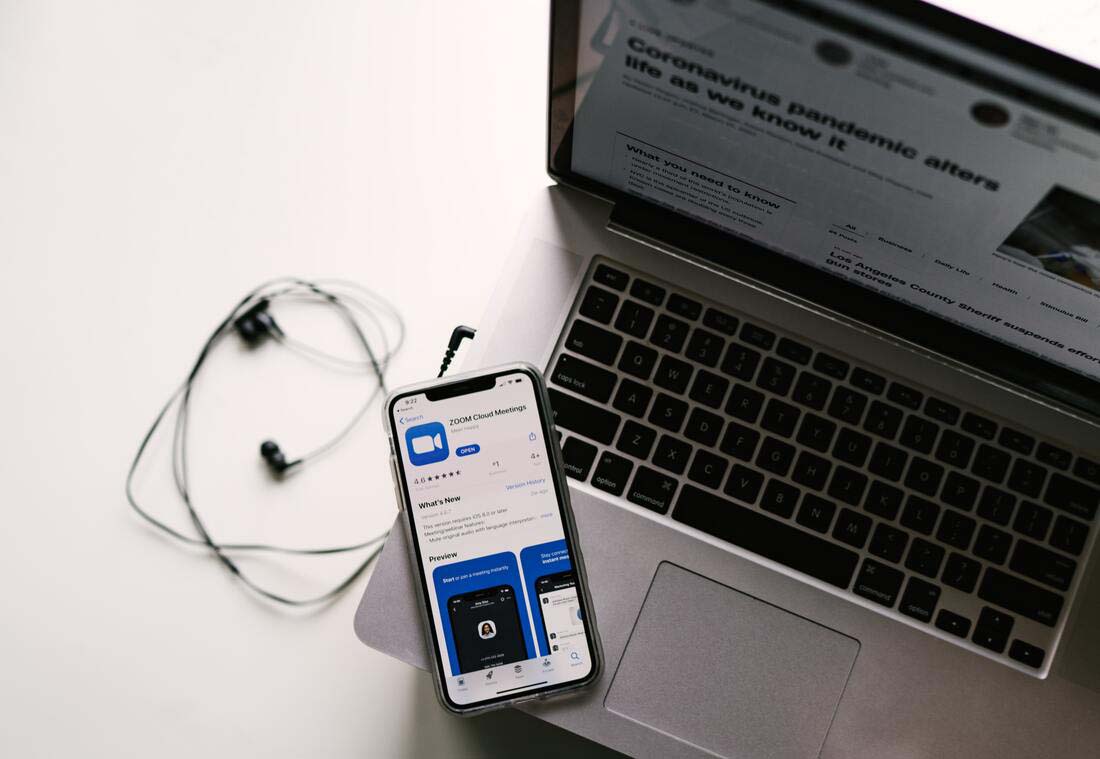
Whether you have been working from home even before COVID-19, or you had to pivot due to COVID-19, you likely have to spend part of, if not ALL of your work day on Zoom, or another video meeting application.
I’m not sure about you, but I never expected the exhaustion and state of fatigue that comes directly after even ONE video call. So, it got me wondering…why does this happen?
Oftentimes, in a video conferencing program, you are prompted with videos of everyone, including yourself, which can be extremely draining.
Even if you are the most confident person in the world, it can be a little nerve-wracking to look at yourself all day long. This can also stir up self-consciousness about how others perceive you as well.
Think of it this way, if you were having that same exact meeting in person rather than on Zoom, would you be looking towards a projector screen, and be focused on that rather than your own appearance?
Or would your attention be turned towards a speaker, presenter, or manager, rather than everyone’s faces? When you are in a meeting in person, it’s likely that you (and everyone else) is focused on the front of the room, maybe your boss is running a meeting, or you are viewing a presentation.
Even in those types of in person meetings, everyone CAN see each other, however, their attention is focused on a central point in the front (like a projector or main speaker).
On Zoom, you can see yourself, your colleagues/other participants, AT ALL TIMES. Even if someone is sharing their screen, you can still see everyone on the side panel.
It takes a lot of emotional energy to manage the distress inside around this new dynamic. So, of course you’re exhausted by this!
Not to mention that on Zoom or any other video conferencing platform, you might feel like you have to make more of an overt effort to appear interested and to “prove” you’re paying attention.
Because you are online, you kind of have to replace in person non-verbal cues that would suggest that you are being attentive, with things such as intense listening and long sustained eye contact.
Exhausting.
Another reason why you may be feeling a little anxious during a Zoom meeting is because of your surroundings. If you have children, what if the kids run in? Or if you have roommates, what if someone knocks on your door? What if the dogs start barking at a squirrel when your mic is on?
Because of the lack of separate work space, your home life and work life are more mixed up and intertwined than ever. You certainly never had to consider any of these things if you were taking meetings in an office or coffee shop. It takes a lot of energy to manage boundaries like this.
And then of course, there’s the whole technology thing.
If you haven’t already experienced some sort of delay on a Zoom meeting (in which case your internet speed must be crazy fast!!!), you probably will at some point.
Silence is a natural part of conversations in person, however, in a Zoom meeting, if it suddenly goes silent, I know my first thought is, “Am I frozen?” Having to constantly worry about this is definitely another stressor.
So what can you do to reduce this fatigue? The first suggestion I have is to reduce any unnecessary meetings (Hello, “could’ve been an email!”).
If you have the flexibility to do so, I would also recommend spacing your Zoom meetings out throughout the week, so you don’t have to sit in front of your computer for an entire day experiencing these frustrations or anxieties related to Zoom.
My last recommendation is to consider phone calls for certain meetings. Not everything has to be on video! This will at least take some of the pressure off of you, you don’t have to worry about looking a certain way or freezing on screen, and you can even take a call while you go on a walk and enjoy some fresh air.
Whether you have 5 Zoom meetings a day or 1 a week, I hope you have a little bit better understanding of why these meetings can be so draining, and walk away with some tips to help you reduce “Zoom Fatigue”.
But above all else, I hope that you can be gentle with yourself. You’re still adjusting to this new way of life. You’ve never been in this situation before, so you’re not supposed to know how to live it perfectly.
Stay safe, be well.




